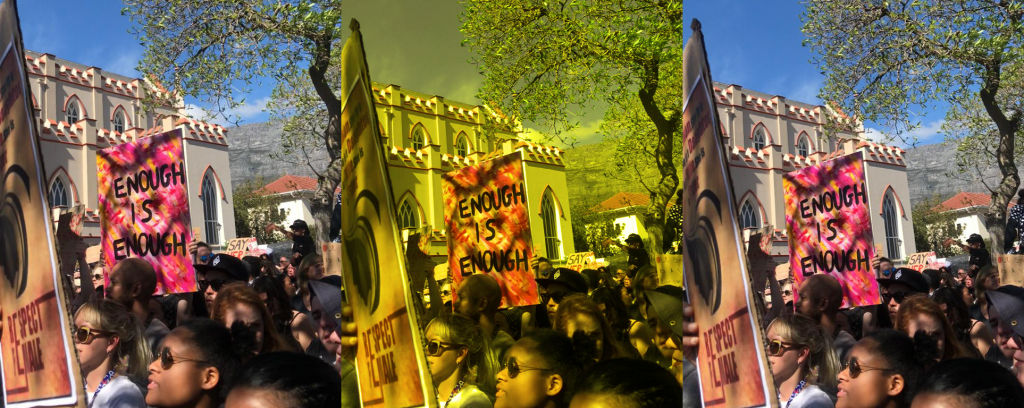Authorities must show that they take women and girls’ rights to safety, dignity and life seriously, and stop paying lip service to this, Amnesty International South Africa said at the start of 16 Days of Activism against Gender-Based Violence (GBV).
Two days before the international campaign started, the quarterly crime statistics released by the South African Police Service showed once again that women and girls are not safe. Between July and September this year, 13,283 sexual offences were reported to police, including 10,590 reports of rape, 1,895 reports of sexual assault, 536 attempted sexual offences, and 262 contact sexual offences. There was an increase in all categories of sexual offences compared to the same period last year, showing that things are not getting any better.
“We are sick and tired of the government saying GBV remains ‘worrying’ and ‘a concern’. The police and the state continue to fail all who live in South Africa by not acting. This failure to do more is violating people’s rights to safety, life and dignity,” Amnesty International South Africa Executive Director Shenilla Mohamed said.
“The state has an obligation to protect people’s rights to life and security and we are not seeing this obligation realised. Enough is enough! More action is needed, and it is needed now.”
Amnesty International South Africa has been tracking the broken promises made by the government to deal with the GBV epidemic.
President Cyril Ramaphosa has announced a number of initiatives to help fight gender-based violence and femicide (GBVF), but to date, very few of these have been implemented and GBVF remains staggeringly high in the country.
This is not only being recognised locally but also internationally as was evident during South Africa’s review at the United Nations (UN) Universal Periodic Review (UPR) earlier this month. The UPR is a review of the human rights records of all UN member states held every four years.
A number of countries have made recommendations to South Africa on tackling GBV. Some of these include that the state develops measurable targets for indicators of the National Strategic Plan on GBVF, prioritise appropriate training for professionals who work with victims of GBV, and redouble efforts to put in place mechanisms to protect women from GBVF.
Next year South Africa will be sitting on the UN Human Rights Council, and while it strives to hold others accountable to human rights abuses, it also needs to look inwards and ensure human rights are being upheld in its own country.
One of Amnesty International South Africa’s biggest concerns is the forensic DNA backlog. This backlog is a large contributing factor to cases of GBV not being prosecuted. Last month, we wrote an open letter to Police Minister Bheki Cele demanding that reliable information on the backlog be made public, as the existing backlog at the Forensic Science Laboratories is denying victims of GBVF access to justice.
In March this year, Cele told the country that the DNA backlog would be cleared within six months. However, after the DNA board appeared in parliament in October to provide the portfolio committee with an update, the Minister then said the backlog would be cleared by the end of January 2023.
“People are tired of having the goal posts moved, we can no longer accept these empty promises,” Shenilla Mohamed said.
“We also cannot accept the DNA backlog as a continued excuse for why there is no justice for victims of GBVF and their families. This is only one component of a broken criminal justice system. The lack of reporting of cases is a clear sign that there is a lack of trust in the police, and more needs to be done to improve on policing in general in this country so that everyone can feel safe.”
Background
16 Days of Activism Against Gender-Based Violence is an international campaign that began in 1991 and runs every year between 25 November (International Day for the Elimination of Violence Against Women) and 10 December (Human Rights Day).
Find out more about Amnesty International South Africa’s #InterruptBrokenPromises campaign here.
For more information or to request an interview, please contact:
Genevieve Quintal, Media and Communications Officer, Amnesty International South Africa: +27 (0)64 890 9224; genevieve.quintal@amnesty.org.za
Public Document
****************************************
Amnesty International South Africa office, 97 Oxford Road, Saxonwold, Johannesburg, 2196
press@amnesty.org


